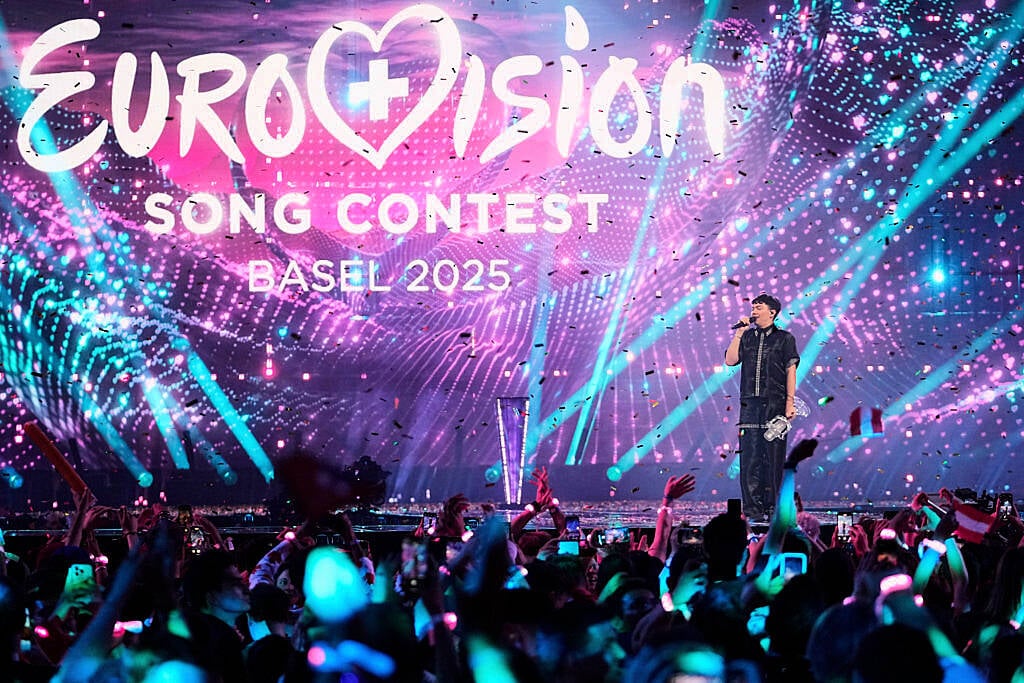**Eurovision to Vote on Israel’s Participation Amid Calls for Exclusion Over Gaza Conflict**
The organisers of the Eurovision Song Contest have announced that member broadcasters will vote in November on whether Israel can participate in next year’s competition. This decision comes amid increasing calls for Israel’s exclusion due to the ongoing Israel-Hamas war in Gaza.
The European Broadcasting Union (EBU), which brings together public broadcasters across Europe and beyond to run the contest, has sent a letter to its members indicating that the vote will take place at an extraordinary general meeting held online in early November. According to EBU spokesman Dave Goodman, the vote will determine whether Kan, the Israeli public broadcaster and EBU member, will be allowed to participate.
An absolute majority will be required for any exclusion to pass, Goodman explained.
This issue is being described as one of the biggest crises Eurovision has ever faced. Dean Vuletic, an expert on the history of Eurovision, said, “This has the potential to really cement division within the organisation.”
Several countries, including Ireland, the Netherlands, Slovenia, and Spain, have threatened to boycott the Eurovision Song Contest if Israel is not excluded due to the conflict in Gaza.
Eurovision is an annual music competition where performers from countries across Europe—and some beyond—compete under their national flags to be crowned continental champions. The contest is often described as a kind of “Olympics of pop music,” but it has also historically been a stage where politics and regional rivalries play out.
In 2024, Eurovision organisers instructed Israel to change the lyrics of its entry, originally titled *October Rain*, which seemingly referenced Hamas’s cross-border attack on October 7, 2023. This attack resulted in the deaths of around 1,200 Israelis and escalated the war. The song was subsequently renamed *Hurricane*, and Israeli singer Eden Golan was allowed to remain in the contest.
Vuletic noted, “If we have two blocs—one which is threatening a boycott, and another which is remaining steadfast in its support of Israel—then this is potentially the most serious crisis that the contest has faced.”
Germany and Austria have publicly supported Israel’s participation in the contest. Other national broadcasters, including the BBC, have yet to make an official decision.
“In previous cases involving Belarus and Russia, we did not see such strong divisions within the EBU,” Vuletic added, highlighting the unprecedented nature of the current situation.
Kan, the Israeli broadcaster, posted on X (formerly Twitter) expressing hope that the contest will continue to uphold its cultural and non-political identity.
Meanwhile, Austria’s Foreign Minister Beate Meinl-Reisinger voiced concerns over potential boycotts of the 2026 Eurovision event in Vienna. She emphasized that the contest should not be used as an instrument for sanctions. Meinl-Reisinger wrote on X that she had reached out to European colleagues, appealing for collaborative efforts to improve the situation in Israel and Gaza.
The Eurovision Song Contest 2026 is scheduled to take place in May in Vienna. The hosting rights are awarded to the winner of the previous year’s contest. This year’s winner, Austrian band TT for their song *Wasted Love*, secured Austria the honor of hosting the event next year.
https://www.breakingnews.ie/world/eurovision-to-decide-whether-israel-can-take-part-in-next-years-contest-1811323.html
